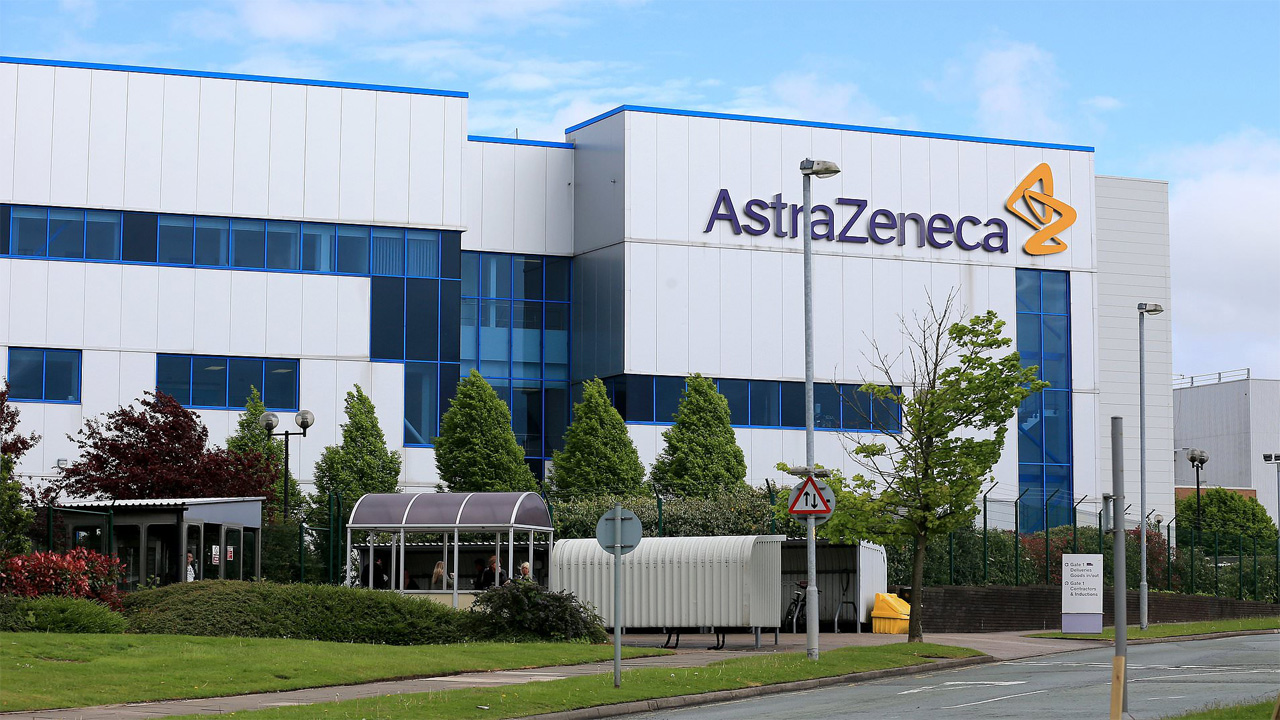To meet the Trump Administration's Operation Warp Speed goals, the U.S. Department of Health and Human Services (HHS) and Department of Defense (DoD) today announced an agreement with AstraZeneca for late-stage development and large-scale manufacturing of the company's COVID-19 investigational product AZD7442, a cocktail of two monoclonal antibodies, that may help treat or prevent infection with SARS-CoV-2, the coronavirus that causes COVID-19.
The goal of AstraZeneca's partnership with the U.S. Government is to develop a monoclonal antibody cocktail that can help prevent infection. An effective monoclonal antibody that can prevent COVID-19, particularly one that is long-lasting and delivered by intramuscular injection, may be of particular use in certain groups. This includes people who have compromised immune function, those who are over 80 years old, and people undergoing medical treatments that preclude them from receiving a COVID-19 vaccine. If the FDA authorizes use of AZD7442 for prevention of SARS-CoV-2, as outlined in agency guidance, the federal government will distribute the doses at no cost. As is customary with government-purchased medical products, healthcare professionals could charge for the cost of administering the product.
The Biomedical Advanced Research and Development Authority (BARDA), part of the HHS Office of the Assistant Secretary for Preparedness and Response, collaborated with the DoD Joint Program Executive Office for Chemical, Biological, Radiological and Nuclear Defense and Army Contracting Command, to provide approximately $486 million to AstraZeneca for two Phase 3 clinical trials and related development activities, including a large-scale manufacturing demonstration project and supply of AZD7442 doses in the United States.
One of the Phase 3 clinical trials of AZD7442 will evaluate safety and efficacy of the product to prevent infection for up to 12 months in approximately 5,000 volunteers. An additional Phase 3 clinical study will evaluate if AZD7442 can help prevent infection in people who have come in contact with someone with COVID-19 in a post-exposure prophylaxis setting. This second study will enroll approximately 1,100 volunteers. The company estimates 100,000 doses of AZD 7442 could be available from this project for the nation's high-risk population that may not benefit from a vaccine by December 2020.
"In addition to Operation Warp Speed's historic progress on vaccines, we are supporting promising monoclonal antibodies for prevention and treatment all the way through to supply, allowing faster distribution if trials are successful," said HHS Secretary Alex Azar. "More good news about COVID-19 treatments is constantly emerging, and President Trump's commitment to supporting lifesaving measures, like AstraZeneca's antibody candidate which may help deliver these products to our nation's most vulnerable populations."
Working in parallel across clinical development and manufacturing supply will accelerate the traditional product development timeline, should clinical trials prove successful and the U.S. Food and Drug Administration (FDA) authorize use of the medicine.
AZD7442 is a combination of two monoclonal antibodies discovered by Vanderbilt University, licensed to AstraZeneca and modified using AstraZeneca's proprietary half-life extension technology to extend their duration of action (the amount of time that the antibodies remain in the body). Monoclonal antibodies synthesized in the laboratory aim to mimic natural antibodies and are delivered by injection or infusion. The antibodies bind to the SARS-CoV-2 virus spike protein, reducing the ability of the virus to infect human cells. The long-acting monoclonal antibody combination neutralizes the SARS-CoV-2, and has the potential to increase effectiveness and durability of the prevention of infection.
Preclinical and clinical development for this antiviral has been supported in part through an existing partnership among BARDA, the Defense Advanced Research Projects Agency, Vanderbilt University and AstraZeneca.
About Operation Warp Speed (OWS):
OWS is a partnership among components of the Department of Health and Human Services and the Department of Defense, engaging with private firms and other federal agencies, and coordinating among existing HHS-wide efforts to accelerate the development, manufacturing, and distribution of COVID-19 vaccines, therapeutics, and diagnostics.
About HHS, ASPR, and BARDA:
HHS works to enhance and protect the health and well-being of all Americans, providing for effective health and human services and fostering advances in medicine, public health, and social services. The mission of ASPR is to save lives and protect Americans from 21st century health security threats. Within ASPR, BARDA invests in the innovation, advanced research and development, acquisition, and manufacturing of medical countermeasures – vaccines, drugs, therapeutics, diagnostic tools, and non-pharmaceutical products needed to combat health security threats. To date, 55 BARDA-supported products have achieved FDA approval, licensure or clearance. For more on BARDA's portfolio for COVID-19 diagnostics, vaccines and treatments and about partnering with BARDA, visit medicalcountermeasures.gov. To learn more about federal support for the all-of-America COVID-19 response, visit coronavirus.gov.
About the JPEO-CBRND:
The Joint Program Executive Office for Chemical, Biological, Radiological and Nuclear Defense (JPEO-CBRND) protects the Joint Force by providing medical countermeasures and defense equipment against chemical, biological, radiological and nuclear (CBRN) threats. JPEO-CBRND's goal is to enable the Joint Force to fight and win unencumbered by a CBRN environment. JPEO-CBRND facilitates the rapid response, advanced development, manufacturing and acquisition of medical solutions, such as vaccines, therapeutics, and diagnostics, to combat CBRN and emerging threats such as COVID-19. To learn more about JPEO-CBRND's COVID-19 response,

 The goal of AstraZeneca's partnership with the U.S. Government is to develop a monoclonal antibody cocktail that can help prevent infection.
The goal of AstraZeneca's partnership with the U.S. Government is to develop a monoclonal antibody cocktail that can help prevent infection.




.jpeg)

.jpeg)





.jpeg)






.jpeg)




.jpeg)








